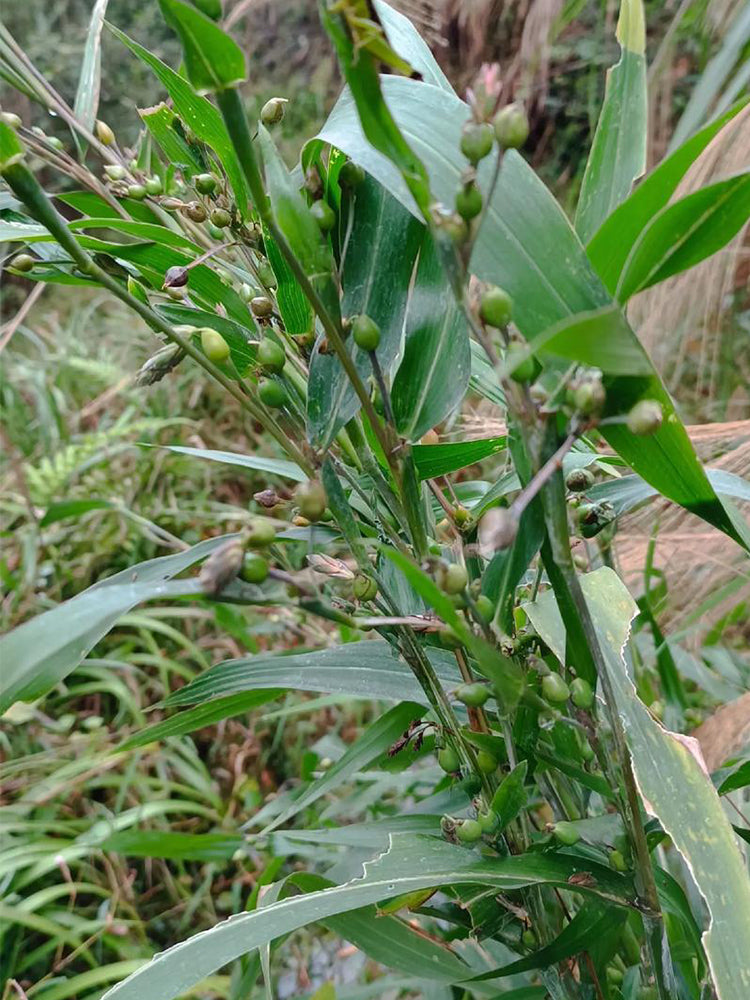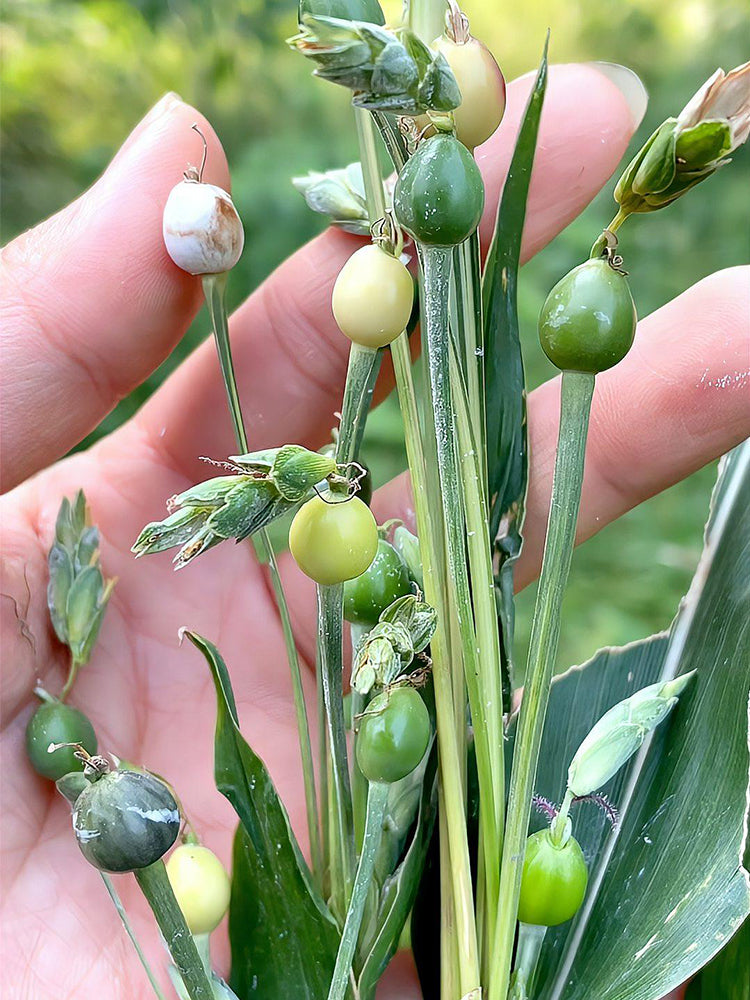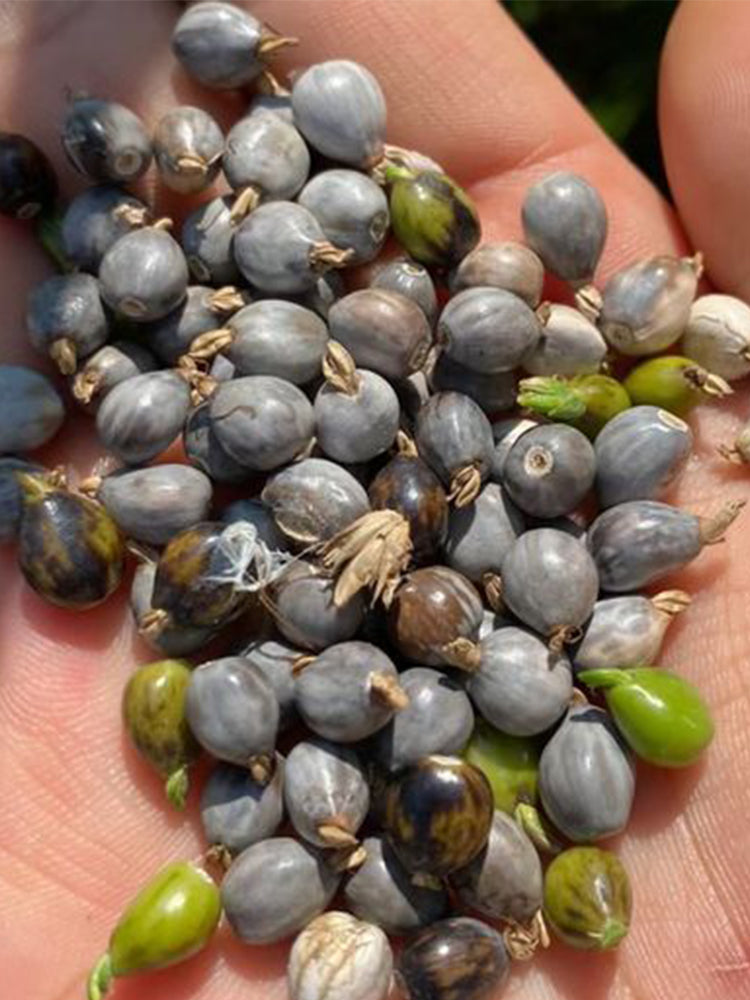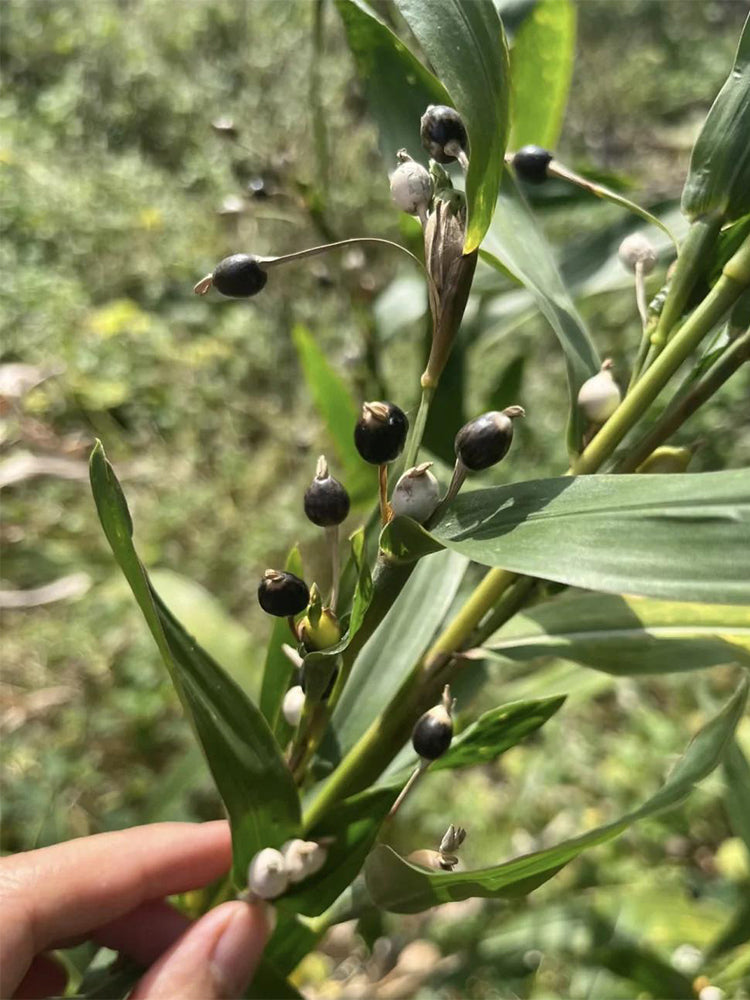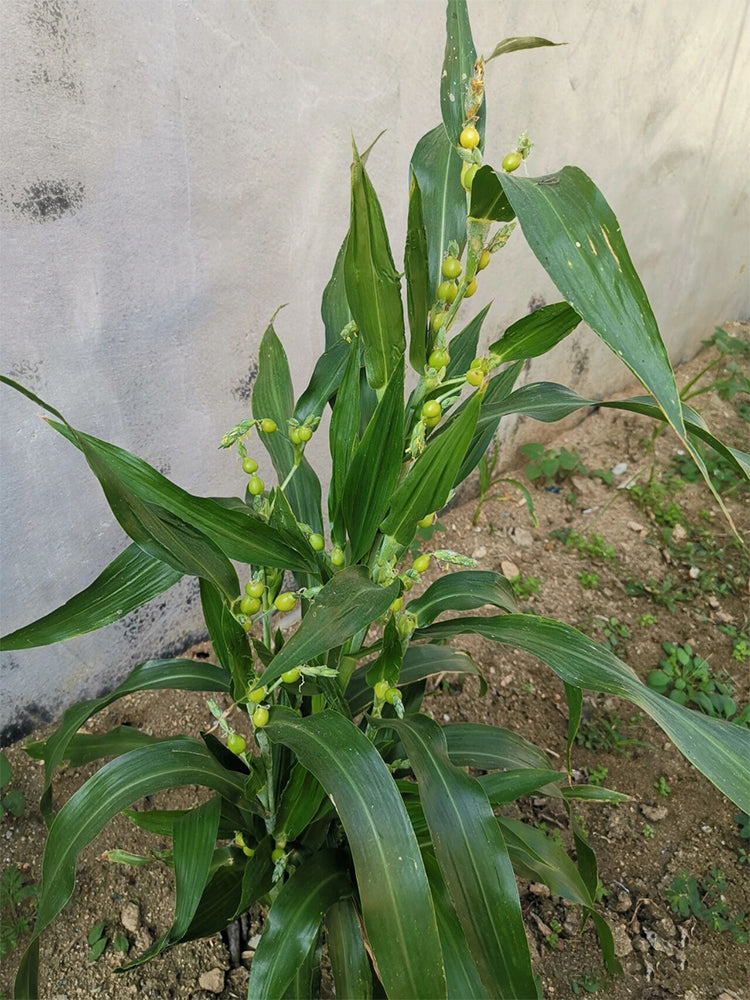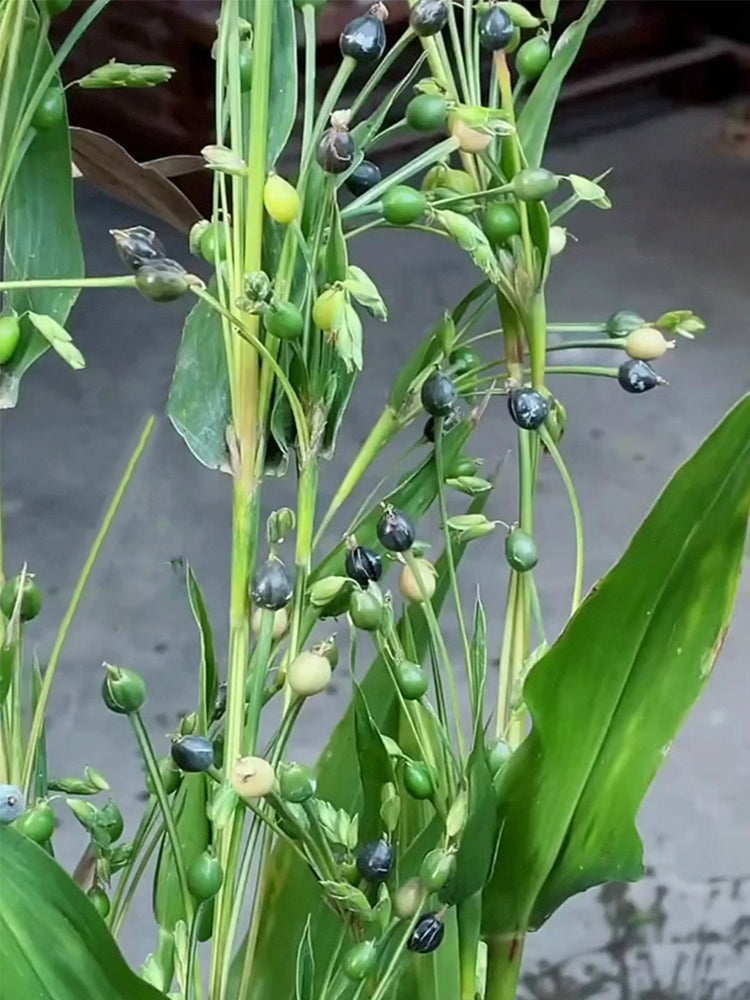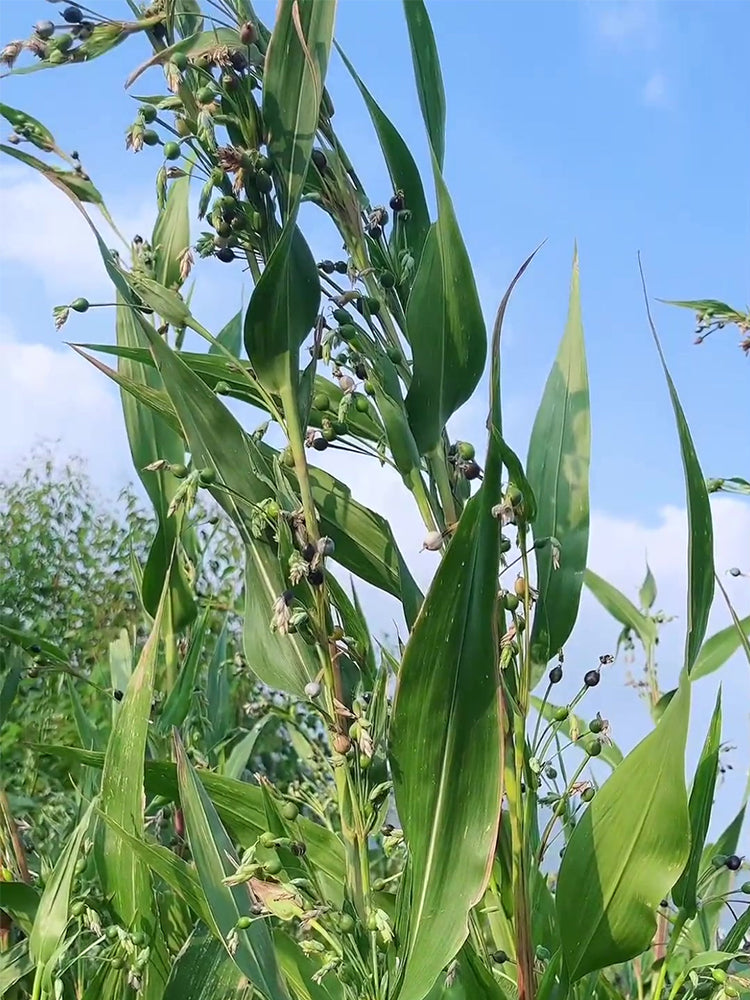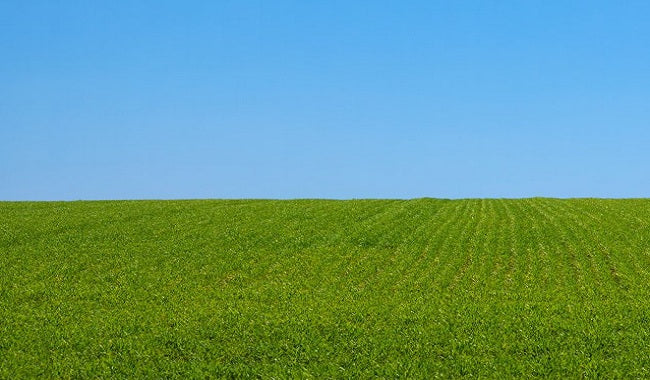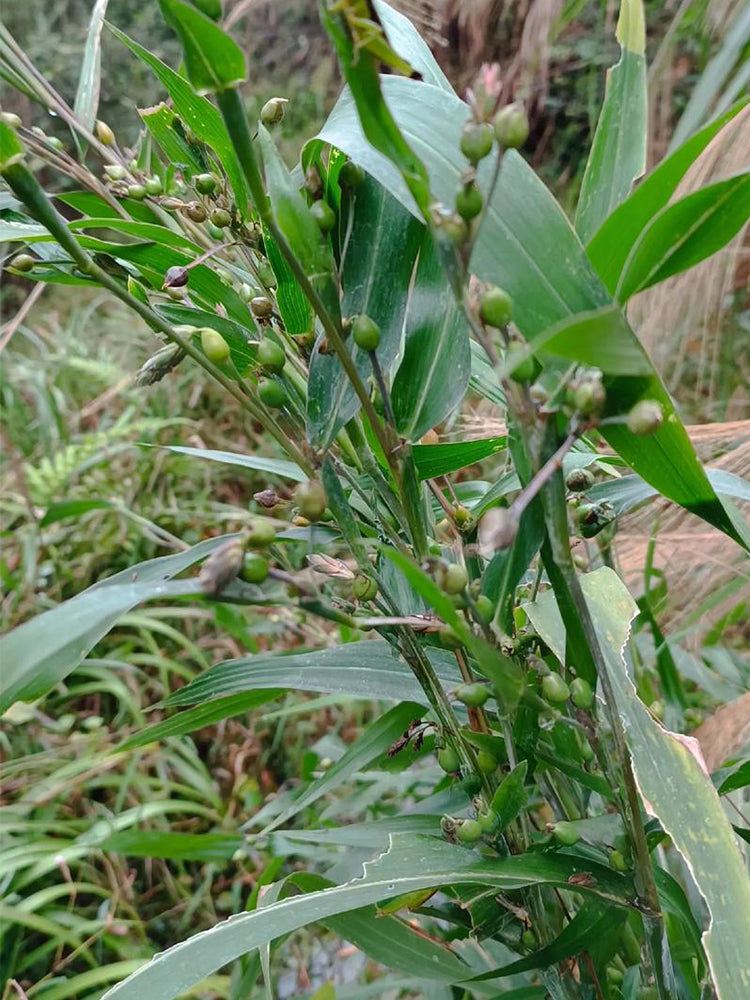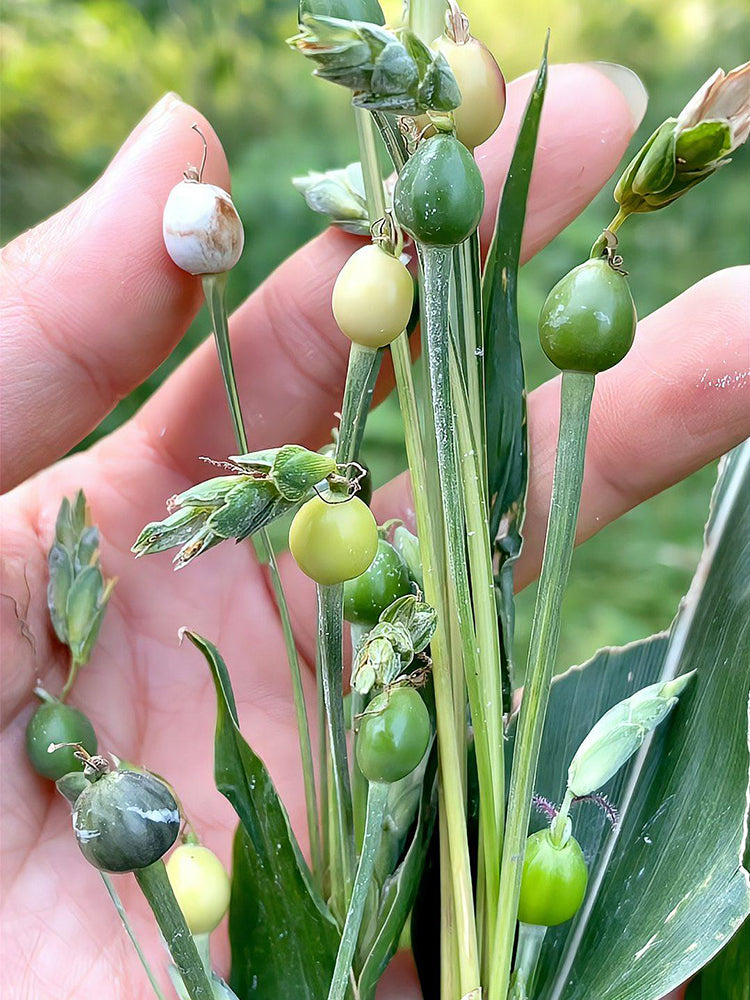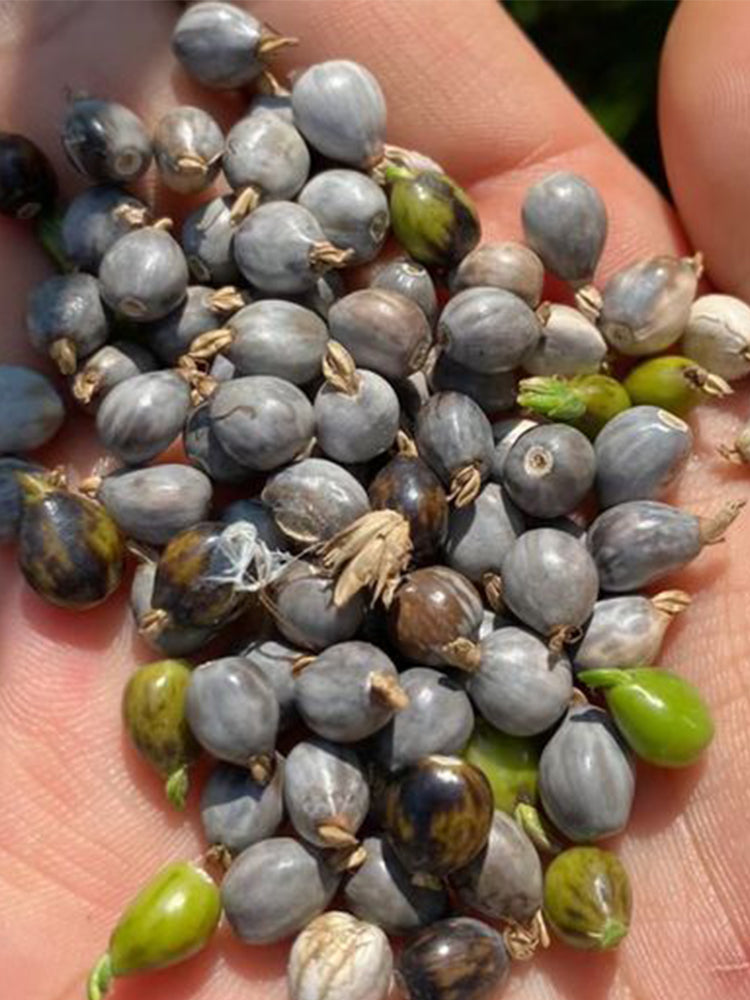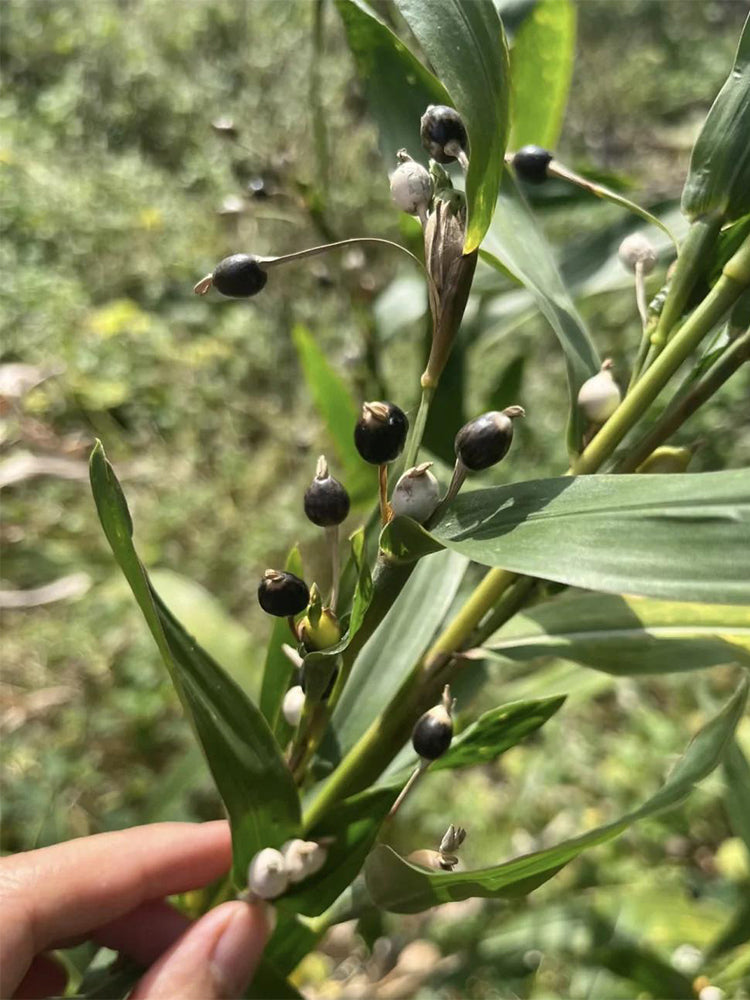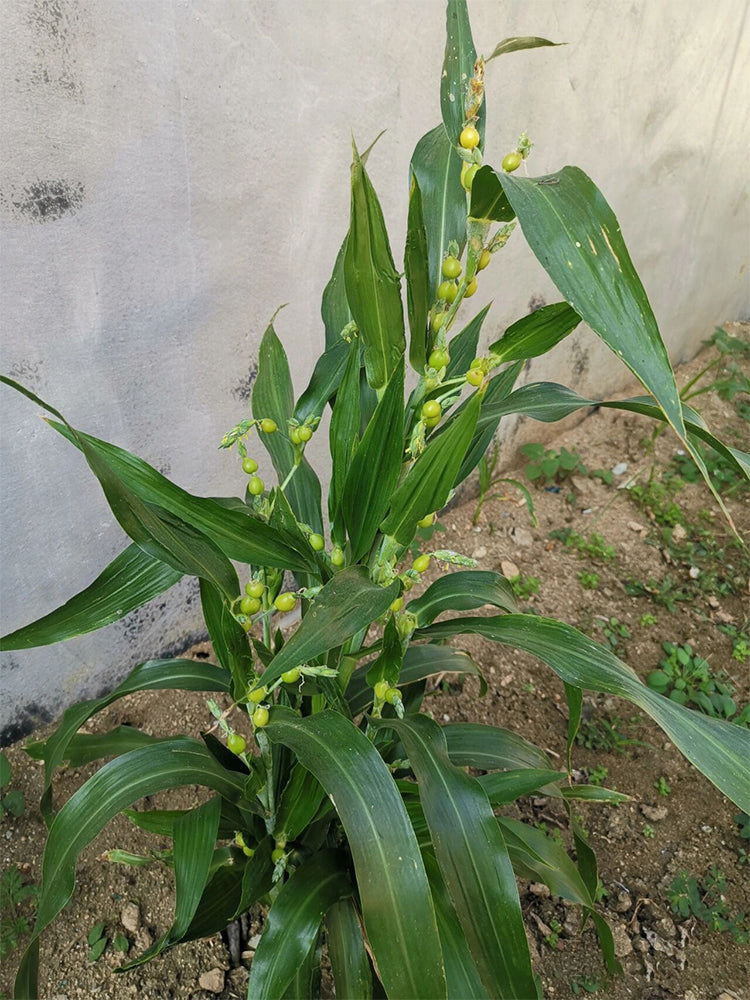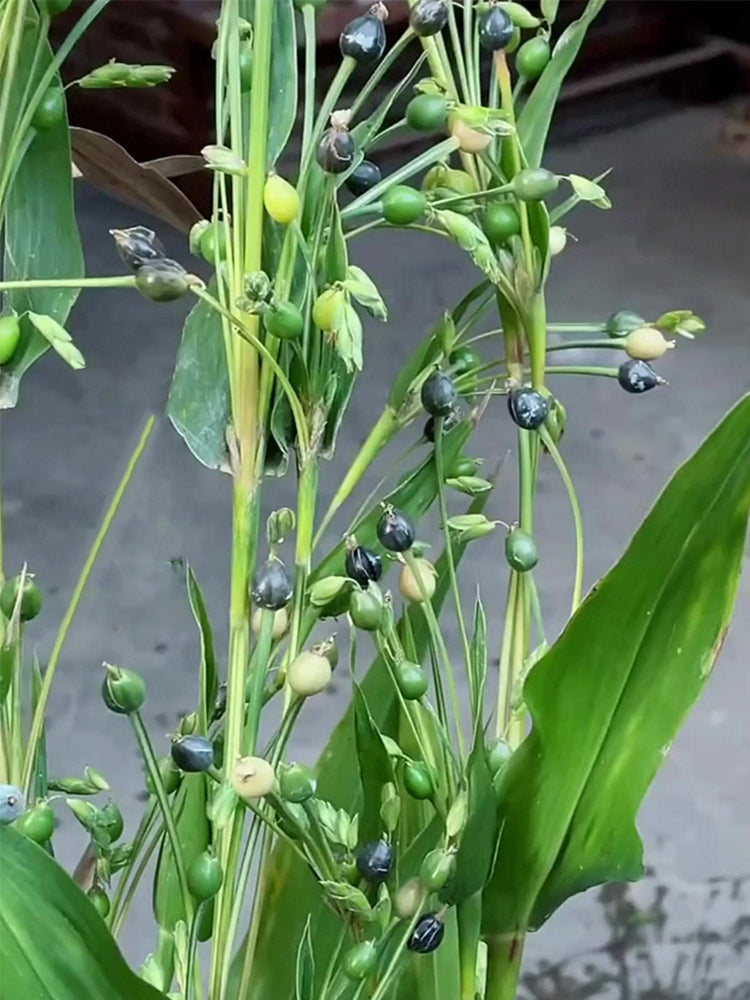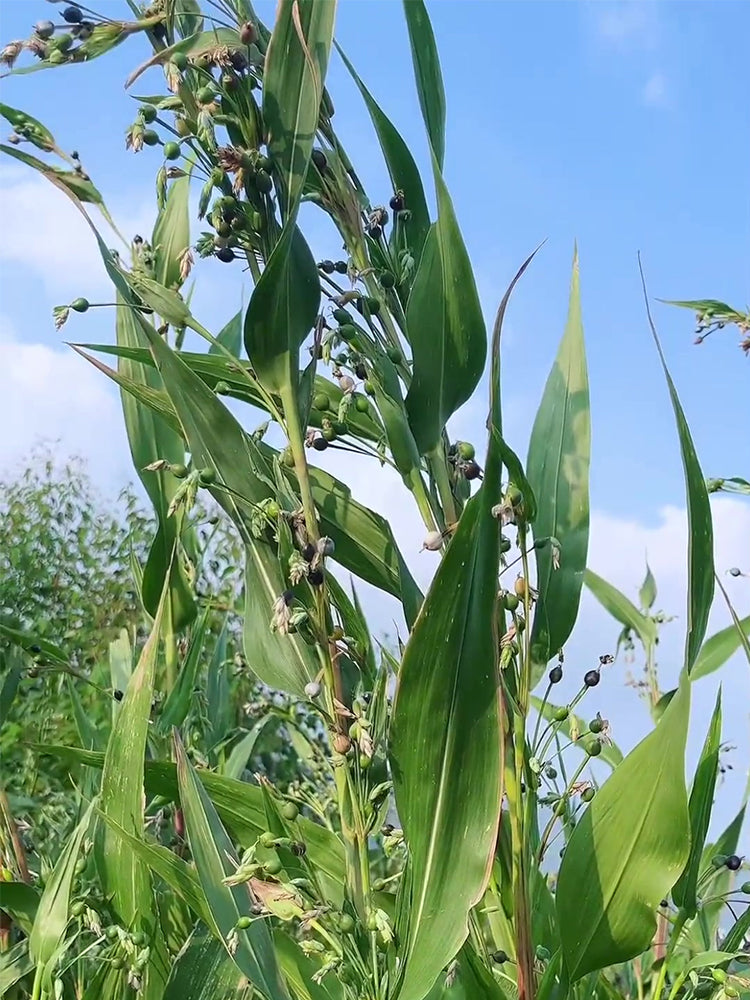BELLFARM
Job's Tears (Coix lacryma-jobi)
Sale
Sold out
Regular price
$3.99 USD
Regular price
$6.99 USD
Sale price
$3.99 USD
Unit price
per
Couldn't load pickup availability
-
5-14 Days delivery.
-
Ship out within 24 hours.
Main characteristics of the variety:
- Job's Tears (Coix lacryma-jobi) is an annual robust herbaceous plant of the genus Coix in the Poaceae family, also known as Bodhi seeds. It has yellow-white spongy fibrous roots (about 3 mm in diameter). The culms are erect and clustered, 1-2 meters high. The leaf sheaths are shorter than the internodes, glabrous, and the leaves are flat and broad (10-40 cm long, 1.5-3 cm wide), with a rounded or nearly heart-shaped base. The racemes are axillary and clustered, erect or drooping, with long stalks. Female spikelets are located at the lower part of the inflorescence, enclosed in hard, bead-like ovoid involucres. Flowering and fruiting occur from June to December.
- This plant grows wild or cultivated in humid environments (200-2000 m elevation), such as around houses, ponds, rivers, valleys, and flood-prone fields. Its bead-like involucres are used as Buddhist prayer beads, giving it craft value, while the straw serves as high-quality livestock feed. It also offers medicinal benefits, including spleen and stomach strengthening, dampness elimination, and swelling reduction.
- Job's Tears (Coix lacryma-jobi) is an annual robust herbaceous plant of the genus Coix in the Poaceae family, also known as Bodhi seeds. It has yellow-white spongy fibrous roots (about 3 mm in diameter). The culms are erect and clustered, 1-2 meters high. The leaf sheaths are shorter than the internodes, glabrous, and the leaves are flat and broad (10-40 cm long, 1.5-3 cm wide), with a rounded or nearly heart-shaped base. The racemes are axillary and clustered, erect or drooping, with long stalks. Female spikelets are located at the lower part of the inflorescence, enclosed in hard, bead-like ovoid involucres. Flowering and fruiting occur from June to December.
- This plant grows wild or cultivated in humid environments (200-2000 m elevation), such as around houses, ponds, rivers, valleys, and flood-prone fields. Its bead-like involucres are used as Buddhist prayer beads, giving it craft value, while the straw serves as high-quality livestock feed. It also offers medicinal benefits, including spleen and stomach strengthening, dampness elimination, and swelling reduction.
